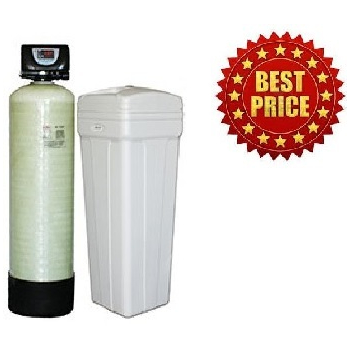
Water is essential for everyday life, but not all water is created equal. Depending on the minerals it contains, water can be classified as “hard” or “soft.” While both types are safe to drink, the differences between them can significantly impact your home, your appliances, and even your personal comfort. Understanding the distinction between hard water and soft water highlights why many homeowners choose to install a water softener.
What Is Hard Water?
Hard water is water that contains high concentrations of dissolved minerals, primarily calcium and magnesium. These minerals accumulate as water flows through limestone, chalk, or other mineral-rich soils and rocks. The higher the mineral content, the harder the water.
Though safe for consumption, hard water creates several household challenges. It leads to scale buildup in pipes and appliances, reduces soap effectiveness, and leaves unsightly spots on dishes and glassware. Over time, these effects can become costly and inconvenient.
What Is Soft Water?
Soft water, on the other hand, is water that contains very low levels of calcium and magnesium. Naturally soft water exists in areas with low mineral content in the soil, but in most cases, water becomes soft through the use of a water softener.
Soft water feels smoother on the skin, helps αποσκληρυντησ νερου soaps and detergents lather more effectively, and prevents mineral buildup in plumbing and appliances. Many households prefer soft water for its efficiency and the comfort it brings to daily living.
Key Differences Between Hard and Soft Water
The contrast between hard and soft water can be seen in multiple aspects of home life:
- Soap and Cleaning: Hard water reduces soap lathering, leaving residue on dishes, laundry, and bathroom surfaces. Soft water allows soap to lather fully, making cleaning easier and more effective.
- Appliances: Hard water creates limescale buildup, reducing the efficiency and lifespan of appliances like dishwashers, washing machines, and water heaters. Soft water prevents this issue, keeping appliances running smoothly.
- Skin and Hair: Hard water can strip natural oils, leading to dryness, itchiness, and dull hair. Soft water is gentler, helping skin feel hydrated and hair remain soft and manageable.
- Plumbing: Mineral deposits from hard water can clog pipes, causing reduced water pressure and costly repairs. Soft water preserves plumbing by preventing mineral buildup.
- Energy Costs: Appliances working with hard water often consume more energy due to scale buildup. Soft water reduces energy use by keeping systems efficient.
How a Water Softener Helps
A water softener is a household system designed to transform hard water into soft water, usually through a process called ion exchange. The device replaces calcium and magnesium ions in hard water with sodium or potassium ions, effectively eliminating the hardness.
By installing a water softener, homeowners can immediately see and feel the difference: brighter laundry, spotless dishes, softer skin, longer-lasting appliances, and lower utility bills.
Why It Matters for Your Home
While hard water is not harmful to health, its long-term effects can be frustrating and costly. Constantly replacing clogged showerheads, repairing scaled appliances, and scrubbing away soap scum takes both time and money. In contrast, soft water simplifies household chores, extends the lifespan of major systems, and enhances everyday comfort.
Investing in a water softener is not just about convenience—it’s about protecting your home and making your daily routines more enjoyable. Over time, the savings in energy, cleaning supplies, and appliance repairs often outweigh the cost of installation.
Final Thoughts
The difference between hard and soft water goes beyond taste or feel. Hard water can quietly damage your home, while soft water provides long-term protection and comfort. By installing a water softener, you ensure that your plumbing, appliances, and personal comfort are safeguarded. In the debate of hard water vs. soft water, the advantages of soft water make the choice clear: a water softener truly matters.
